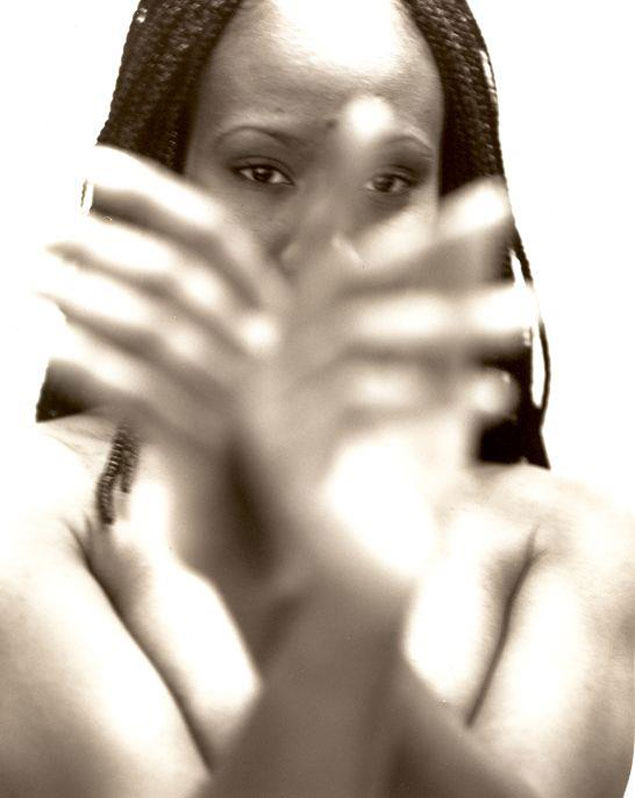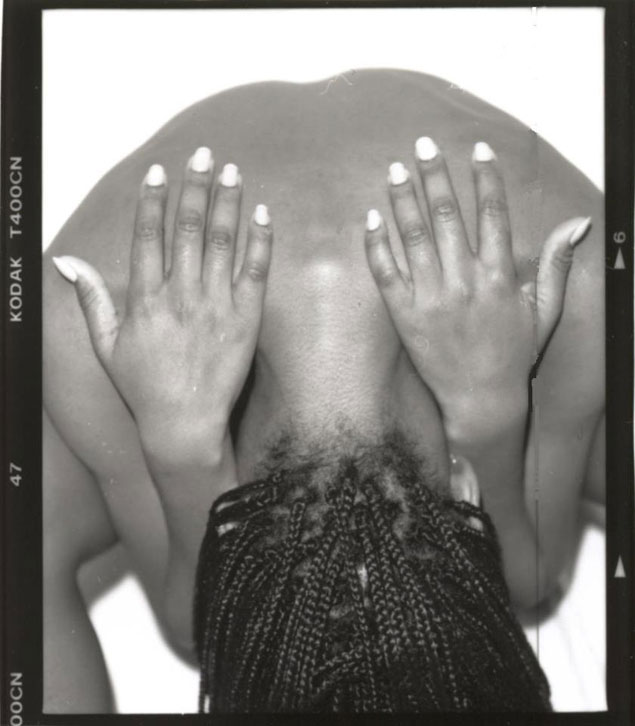
Poet, spoken-word, artist
Interview by Michelle Flowers
“I am that I am,” is the mantra that begins the contemplative theatrical piece called RITUAL that is a part of this year’s production of BLACK WOMEN: STATE OF THE UNION. I am proud to play the role of the character called “She” in this piece, and I can honestly say that performing this role has transformed my life and how I see myself in the world. Never before has a theatrical piece ever moved me in this way. It has shaken me to my core and made me question what it means to exist as a woman, and more specifically, as a black woman, during a time when there is “a collective global insanity,” yet despite the changing nature of the world today, “She” finds her internal strength and proclaims, “All in line with a spirit that knows, it’s controls the whole, and nothing at all. I’m going through a shift.” With these words, I personally—as a performer—found a new way to claim my power and ground myself in the present moment. Performing RITUAL has been a game-changer for me and I thank Tanya for the opportunity to take on the role of “She.”
Because I have personally been so moved by RITUAL, I focus this edition of Indigo Thread on an interview with poet and spoken word artist, Tanya Alexander. I interviewed her about the play RITUAL, her creative work, what inspires her, and future of trends developing in the world of poetry and spoken word.
MF: Your piece Ritual changed my life and helped me to expand myself as an artist. Have you found that other performers have had similar experiences with your work? Share examples, please.
TA: First of all, thank you for such a wonderful compliment. I’ve worked with other artists that have been inspired to follow their creative dreams after hearing my poetry or taking a class of mine. I used to teach at The Professional Performing Arts School in New York City and a few of my students went on to teach dance themselves because they were introduced to movement in my classes and took to it. I’ve had friends of mine yell out pieces of poetry they’d love to hear at my shows because it gives them something (laughter, strength, etc.), when they hear it. A few friends of mine have been inspired to write their own plays and tell their story after being involved in one of my productions.
MF: In Ritual, you include the phrase: “I am.” Please explain the source of that powerful phrase, and what do you want people to take away from it?
TA: That phrase is and has been studied and analyzed in spiritual books and philosophy for centuries. “I think therefore I am”, “The great I am”, etc. It’s one of the most truthful, simple and powerful declarations that a human being can make. It’s a factual statement that no matter what is going on, can bring you back to what’s real, what’s true. And that’s why it’s in the play.
MF: Who are your creative heroes?
TA: Wow. That’s a hard one. There are so many. Some of them are friends of mine, family, and colleagues. My family: Mom, Dad, uncles, aunts are all very creative. I have artists and designers and home cooks and writers and visionaries in my family that have been there for me since birth. So, my first heroes were definitely within my family. Poets of the Harlem Renaissance, Shakespeare, Greek Mythology, are just a few in the literary world. Dancers: Gene Kelly, Katherine Dunham, Bob Fosse, Judith Jamison, Alvin Ailey, and a whole host of others.
MF: You have quite an impressive career. Tell our readers about your greatest achievement.
TA: I can’t pinpoint one particular event or gig or creation. It’s like choosing between your children. I am very proud of my spoken word CD and all that came with producing it and putting it together. It was a two-year process and worth every minute. I also love the plays I’ve done and my work with other artists on their projects. For me, it’s really about putting my energy and passion into whatever I’m working on at the time. So, each piece or project is very special to me.
MF: What do you feel is missing in today’s representation of black women in the media? And, what are you doing to fill that gap?
TA: I feel there’s always room for strong, positive representations of black women. We tend to get pigeonholed as the neck swiveling, smart aleck diva or “sassy” hood rat. If not that, we’re being seen in a hyper sexual way. I’d like us to be seen as the dynamic, multi-faceted, intelligent beauties that we really are. And I’d like to see all our colors and shades represented as such, not just those on the lighter side of the spectrum.
MF: I know that you are as dancer, poet, actress and spoken work artist. How would you describe the connection between the body and the word?
TA: I know that dance is often inspired by what one hears. Music or words spoken, even silence. The body responds to the way we speak, whether it’s in anger or it’s a sexy whisper. One of the great things about spoken word is that it can be interpreted in dance in such a beautiful and unique way. The rhythm and descriptiveness of the words lends itself to physical expression. It’s s wonderful connection of two very powerful art forms.
MF: How do you find time to do all that you do? What Tim management tips could you share with our readers?
TA: I was just thinking about that today! Really, it’s just a matter of taking one step at a time. Sometimes I have to write things down so I don’t forget anything, but I move through things in their own time. Mainly because I’ve learned to enjoy things as they happen. Just the process of making something happen is such an interesting thing. Deciding where a poem will end, what kind of twist or turn a play will take, what movement may come from song…it’s all good. I’ve learned over the years, that taking time to do things makes time to do things. Rushing always seems to leave things undone, so I just take a breath, stay present and move through the task or project. It works.
MF: What advice would you share with a young writer?
TA: Don’t be afraid to re-write and use the same theme in multiple projects. I think a lot of writers feel like they have to come up with crazy ideas for every piece. A lot of my work revolves around the same premise, just said in a different way. It could be about love, but today’s love is sweet, tomorrow’s might be vindictive…who knows? But if the theme is love, stay with it and put it out there. There’s no shortage of ideas in the world and writing what you feel, even if it’s the same as yesterday is okay, because it’s new today. And free writing just helps those ideas to develop into something unique.
MF: What future trends do you see developing in the world of poetry and spoken word?
TA: You know, poetry and spoken word are art forms that are so varied, diverse and global that there are no trends. It’s an expression from the human soul and has no limits, no outlines or “how to’s”. It’s so unique to each individual that there are no trends. It just is, and that’s the beauty of it.
Tanya Alexander’s play, RITUAL, is part of the Black Women: State of the Union’s current production called Taking Flight which will be performed Fridays and Saturdays (8pm), and Sundays (3pm), February 15-25 at Company of Angels at The Alexandria Hotel (501 South Spring Street, 3rd Floor, Los Angeles, CA 90013). Tickets to BWSOTU are $20 ($15 Senior/Student discount). For theater reservations, go online to www.companyofangels.org. For more details about BWSOTU, visit www.bwsotu.org.

Indigo Thread: Artist Spotlight on Tanya Alexander
Indigo Thread: Women of Vision and Purpose is a column on Orijin Blog and Magazine. The column focuses on Black women in the media and other areas of society, including social, cultural, economic and spiritual. The blog appears on Mondays, and the magazine version of the column appears in each edition of the publication. It is written by anthropologist and actress, Michelle Flowers, who is based in Los Angeles, CA.
Latest posts by michelleflowers (see all)
- The Lark of Music: Cuban Soprano - November 26, 2014
- Killing Us Softly & Often - February 16, 2014
- Kellie Dantzler: Living a Life of Joy, Grace, and Purpose - February 25, 2013



